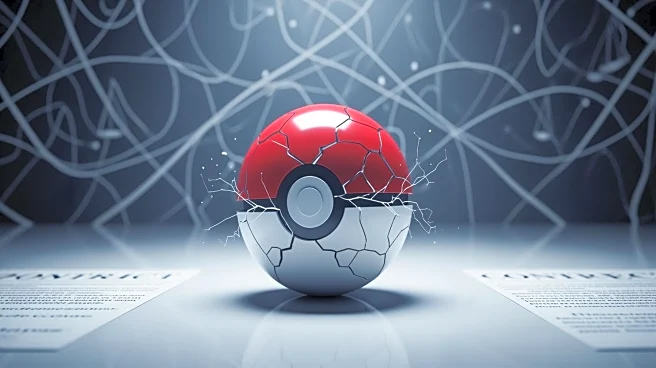What's Happening?
Nintendo's attempt to secure a patent for the game mechanic of capturing characters, a feature prominently used in its Pokémon games, has been rejected by the Japan Patent Office (JPO). The patent application,
filed in March 2024, was denied after a third-party submission highlighted prior art, indicating that the technique lacked an inventive step. This decision comes amidst Nintendo's ongoing legal battle with Palworld developer Pocketpair, whom Nintendo accused of infringing multiple patent rights. The rejection by the JPO suggests that the ability to catch creatures in games existed before Nintendo's filing, with examples cited from games like Studio Wildcard's ARK and Capcom's Monster Hunter 4. Although the decision is not final, it poses a significant challenge to Nintendo's legal strategy, particularly concerning its lawsuit against Pocketpair.
Why It's Important?
The rejection of Nintendo's patent application by the JPO could have broader implications for the gaming industry, particularly in how game mechanics are patented and protected. For Nintendo, this decision may weaken its position in the lawsuit against Pocketpair, potentially affecting its ability to claim damages or secure an injunction. The case also highlights the complexities of intellectual property rights in the gaming sector, where similar mechanics can appear across different games. If Nintendo's patent is ultimately denied, it could set a precedent that influences future patent filings and disputes, impacting how companies protect their innovations and compete in the market.
What's Next?
Nintendo may need to amend its patent filing to address the JPO's concerns or consider alternative legal strategies to protect its intellectual property. The company might also appeal the decision or seek to strengthen its case against Pocketpair by focusing on other aspects of the alleged infringement. The outcome of this case could prompt other gaming companies to reassess their patent portfolios and strategies, potentially leading to increased scrutiny of patent applications and a reevaluation of what constitutes a novel game mechanic.









